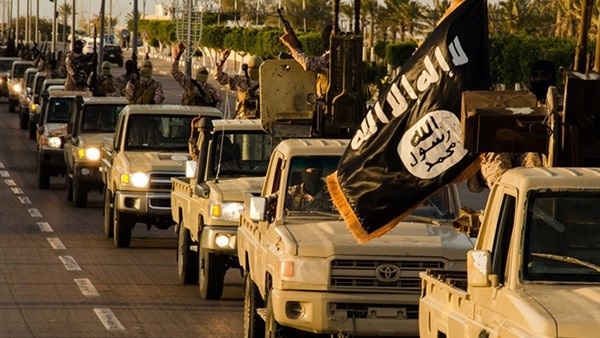South Africa: Fertile ground for financing terrorism

South Africa has become fertile ground for the expansion of
ISIS amid several incentives for its spread, including recruitment, the use of
extremist and racist ideas, the existence of divisions between Sunni and Shiite
groups, the spread of religious fanaticism within the Islamic community in the
country, as well as the ease of transferring money to it without any obstacles.
ISIS financing center
South Africa has never been actively involved in terrorist
attacks, but it is nonetheless considered a funding center for ISIS and other
extremist organizations.
According to AFP, South Africa is open land for
financiers to collect money and transfer it to the hands of terrorists.
In 2022, the US government
imposed sanctions on a number of South African
citizens accused of belonging to an ISIS terrorist cell, and Washington said
that the group facilitated the transfer of funds to ISIS branches across
Africa.
Illegal financial activities
The first signs of a problem appeared in March 2023, when
the Financial Action Task Force (FATF), a Paris-based global organization that
monitors illicit money transfers and aims to combat money laundering and
terrorist financing, put South Africa on its gray list that identifies gaps in
monitoring and stopping illicit financial activities.
Various circumstances, including a permissive financial
system, porous borders, corruption and widespread crime have made South Africa
fertile ground for terrorism.
Much of the money comes through organized crime gangs
that collect money by smuggling drugs and precious metals, in addition to
kidnapping for ransom. Extortion operations are also spread through fake
accounts on dating sites, with the aim of trapping victims.
Kidnapping cases have doubled, recording 4,000 cases
between July and September of 2022, compared to the previous three months,
according to police statistics.
According to an investigation conducted by the South
African weekly newspaper The Sunday Times, 6.3 billion rand (approximately $342
million) was transferred from South Africa to Kenya, Somalia, Nigeria and
Bangladesh via telephone transfers using approximately 57,000 unregistered SIM
cards between 2020 and 2021. The “hawala” system is also used to send money,
which is an informal payment system based on trust and is much more difficult
to monitor than bank transfers. Some of the money sent abroad is really
intended to help relatives, and the exact amounts collected by terrorists are not
known.
Financing center
According to the South African newspaper, internal ISIS
documents show that of the funds collected on the continent, the organization’s
branch in Somalia keeps 50%, while 25% is shared between the cells in Mozambique
and the Democratic Republic of the Congo, and the rest goes to the
organization’s center.
One of the suspects on the US list, Farhad Hoomer, 47
years old, based in Durban, South Africa, is the leader of one of the cells. Sanctions
were imposed on him in 2022 for his increasingly pivotal role in facilitating
the transfer of funds from the top of the ISIS pyramid in Iraq and Syria to branches
across Africa.
Hoomer denied that he was the leader of an extremist
organization cell and told AFP that he was surprised by the sanctions, adding, “I
am waiting for proof.”
South Africa is now intensifying its efforts to exit the
FATF gray list, with several pieces of legislation being fast-tracked in the parliament
in recent months, particularly legislation relating to combating money
laundering and terrorist financing.
On May 19, Security Minister Khumbudzo Ntshavheni told
lawmakers that her office - along with other bodies - will continue to develop
and implement measures to ensure that South African territory is not used to
plan, facilitate and carry out terrorist acts, or to obtain, transfer, store
and use funds to support terrorism.
Center for terrorism
Samar Abdullah, a researcher of African affairs, said
that the West considers South Africa a global center of terrorism. In 2022, the
American government imposed sanctions on a number of South African citizens on charges of
belonging to an ISIS cell, as this group facilitated the process of
transferring money to the organization’s branches in a
number of African countries.
Abdullah confirmed in a special statement to the
Reference that the accusations against South Africa also include technical,
financial and material support for terrorist groups, adding that South Africa’s
association with terrorism is due to several reasons, including a lax financial
system in which terrorists find a safe haven and borders that are easy to
penetrate, as well as corruption and the spread of organized crime in the
country.





